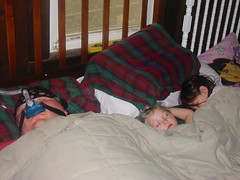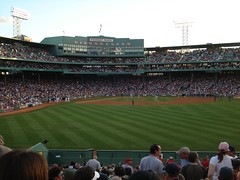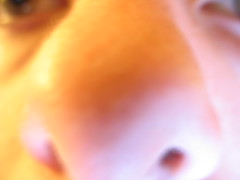
People with sleep apnea should be aware of the treatment options. Did you know there are several types of CPAP masks?
Here's a brief article on the different types of CPAP masks used with CPAP machines for the treatment of obstructive sleep apnea. The article discusses common triangular CPAP masks and the less common oral masks, nasal pillows and hybrid masks.
I've used triangular CPAP masks of both the nose only and nose and mouth variety. The nose mask is the most common type of mask.
I used a nose mask for a few years. It was very easy to wear and get used to. The downside for me, with a high pressure setting on my CPAP, is that the nose mask caused dryness in my nasal passages and required me to either use a humidifier or use saline solution a few times a day.
A second sleep study revealed that the nose mask left me with the problem of breathing through the mouth.
I tried using a chin strap to keep my mouth closed, but that didn't help much, though I only tried one type of strap. There are potentially better chin straps on the market that I have yet to try.
I switched to a nose and mouth full face mask. Full face CPAP masks require more adaption time because the masks must be on tighter to prevent air from escaping from the seams. The first several nights for me were interrupted by the bzzzzz sound of air escaping from the seams. Making the straps tighter then became uncomfortable. Getting to the right balance took time. Oh, the joys of severe sleep apnea!
After the right balance is achieved, the nose/mouth full face mask worked better in my situation. Each situation is different. This article discusses types of CPAP masks and how the masks are used.
View the article
here about the different types of CPAP masks.






